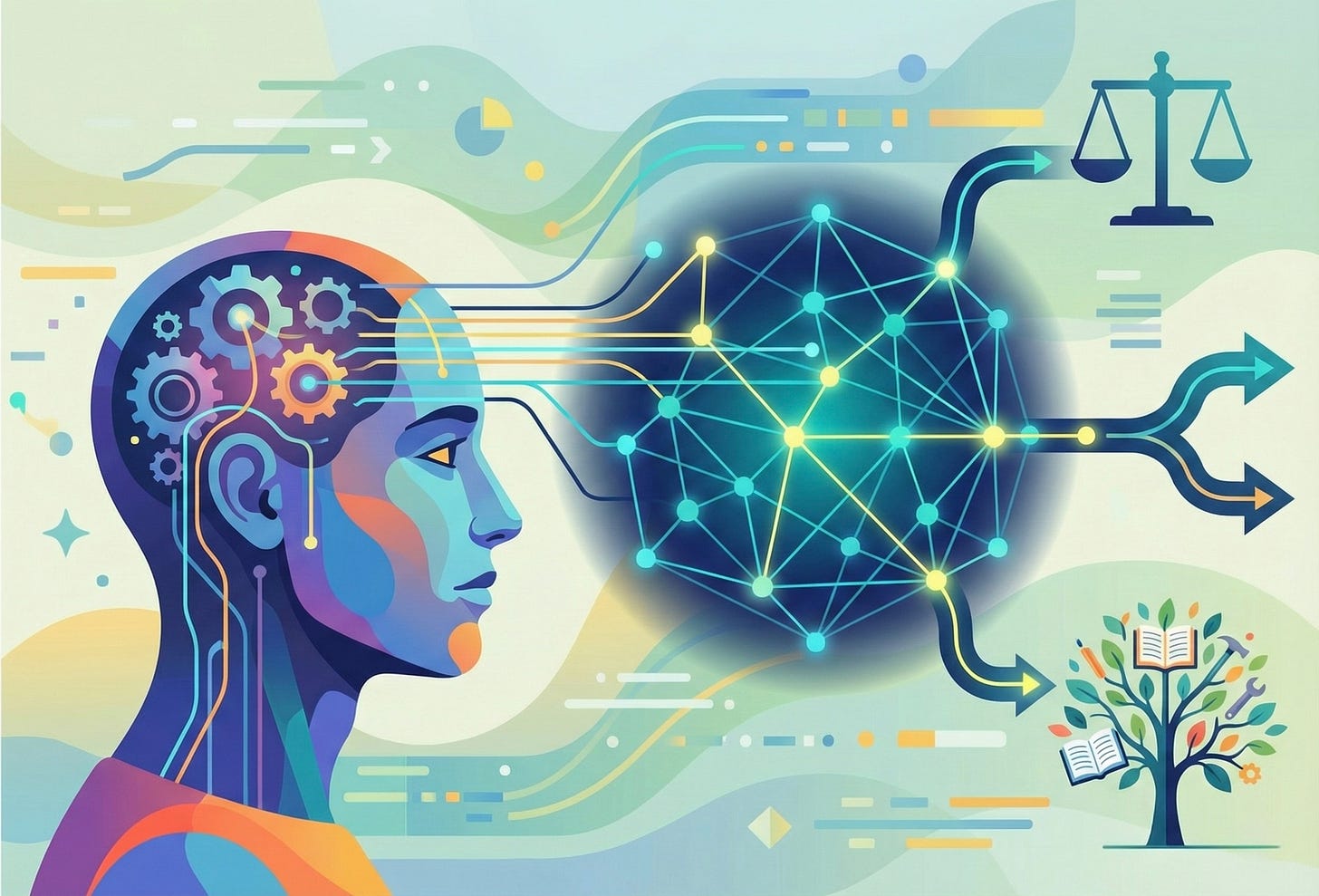The AI Mirror
Beyond the Assistant to the Cognitive Partner
Large language models have seamlessly integrated into our digital lives, becoming indispensable assistants for everyday tasks. We use them to draft emails, summarize articles, and plan vacations with remarkable efficiency. Yet, in our rush to embrace this convenience, we are largely neglecting the most transformative potential of this technology. We are using a sophisticated tool for simple labor when we should be engaging it as a dedicated partner for cognitive growth. The most profound uses of AI are not about getting answers faster, but about asking better questions of ourselves.
The first and most underutilized application is to treat the AI not as a validator, but as a cognitive sparring partner. It is human nature to seek confirmation for our beliefs, and LLMs are happy to oblige, serving up information that reinforces our existing worldview. The more challenging, and ultimately more valuable, approach is to prompt the AI to systematically dismantle our own arguments. By asking it to act as a rigorous debater or a critical philosopher, we are forced to confront the weak points in our reasoning, seek stronger evidence, and forge beliefs that can withstand scrutiny. This requires intellectual humility, but it is the surest path to genuine understanding, turning the AI into a mirror that reflects the flaws in our logic.
Secondly, we are failing to use LLMs as decision simulators for our most complex life choices. We ask for simple pro-and-con lists when we could be modeling entire future scenarios. For a major career change or financial decision, an LLM can synthesize vast amounts of data to create detailed, narrative-based simulations of potential outcomes. It can project a "day in the life" a year down two different paths, illuminating the subtle, second-order consequences and emotional trade-offs that a simple list cannot capture. This moves beyond seeking a "correct" answer and instead provides a framework for exploring potential future selves, allowing for a more considered and holistic decision-making process.
Finally, we are using AI as a quick tutor when it could be our personalized engine for deep learning. Instead of asking for isolated facts, we should be commissioning it to act as a personal "Dean of Studies," designing comprehensive, long-term syllabi tailored to our specific goals and learning styles. An AI can architect a multi-month curriculum to master a complex skill like coding or data analysis, complete with projects, resources, and methods for testing knowledge. It transforms the learning process from a passive retrieval of information into an active, structured journey of mastery.
The true frontier of personal AI use is not about outsourcing our thinking, but about augmenting it. It requires shifting our perspective from viewing the LLM as an oracle that provides answers to seeing it as a tool that sharpens our ability to think, decide, and learn. By embracing these neglected applications, we can move beyond mere productivity and use this technology to become more critical thinkers, wiser decision-makers, and more capable individuals.


